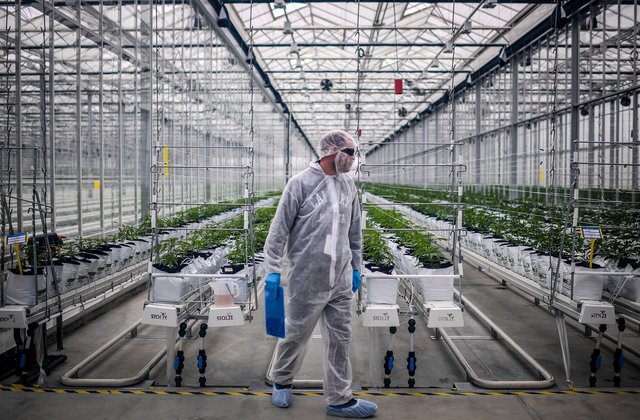
Abstract: The legalization of cannabis products has spurred a complex legal landscape, particularly concerning trademark protection. This article provides an in-depth comparative analysis of trademark registration processes for cannabis-derived goods in Brazil and the United States. By examining the nuances of each country’s legislative framework and regulatory practices, this article aims to offer comprehensive insights for businesses operating in the cannabis industry.
Index:
Introduction: The rapid expansion of the cannabis industry has given rise to intricate legal challenges, notably in trademark protection. Brazil and the United States represent divergent approaches to cannabis legislation, shaping the trademark registration procedures within each jurisdiction. This article delves into the intricacies of trademark protection for cannabis-derived goods in Brazil and the USA, offering practical guidance for businesses navigating these distinct legal landscapes.
Trademark Protection in Brazil: In Brazil, the regulatory framework for cannabis is predominantly governed by the Agência Nacional de Vigilância Sanitária (ANVISA). While the country permits the medicinal use of cannabis-derived products under strict regulations, recreational use remains illegal. Trademark registration for cannabis-related goods is subject to ANVISA’s guidelines, with a particular emphasis on medicinal applications. Businesses encounter regulatory hurdles and bureaucratic processes in obtaining trademark protection for cannabis-derived products, reflecting Brazil’s cautious approach to cannabis legalization.
Trademark Protection in the USA: Conversely, the United States presents a multifaceted landscape of cannabis legislation, characterized by disparities between federal and state laws. While cannabis remains classified as a Schedule I controlled substance at the federal level, many states have legalized its medicinal and, in some cases, recreational use. The passage of the 2018 Farm Bill marked a significant milestone, removing hemp-derived products, including CBD, from the definition of marijuana. Consequently, trademark registration for hemp-derived CBD products meeting specific criteria is permissible under federal law. However, trademark registration for marijuana-derived products remains prohibited due to federal illegality.
Comparative Analysis: Brazil’s regulatory approach to trademark protection reflects a cautious stance towards cannabis legalization, emphasizing medicinal applications and stringent regulatory oversight. In contrast, the USA’s decentralized model offers greater flexibility at the state level but presents challenges due to federal restrictions on marijuana-related trademarks. While Brazil prioritizes regulatory clarity and compliance, the USA’s fragmented regulatory landscape poses complexities for businesses seeking trademark protection.
Strategies for Trademark Protection: In Brazil, businesses must navigate ANVISA’s regulatory requirements and bureaucratic processes to obtain trademark protection for cannabis-derived goods. In the USA, companies can explore trademark registration opportunities for hemp-derived CBD products under the 2018 Farm Bill. Additionally, businesses can pursue state trademark registrations and focus on non-marijuana-derived goods to build federal trademark rights.
Protecting Trademarks in the Marijuana Space: Despite federal restrictions on marijuana-related trademarks in the USA, businesses can pursue state trademark registrations in jurisdictions where cannabis is legalized. State trademark registrations offer protection within specific geographic areas, providing a foundation for brand recognition and market presence. Additionally, companies can explore federal trademark registration for non-marijuana-derived products and goods traditionally used with tobacco products, leveraging lawful avenues to establish federal trademark rights.
Conclusion: The comparative analysis underscores the diverse approaches to trademark protection in the cannabis industry, exemplified by Brazil and the USA. By understanding the nuances of trademark protection in each jurisdiction and adopting strategic approaches, businesses can navigate the complexities of the cannabis industry while safeguarding their intellectual property rights.
References:
Agência Nacional de Vigilância Sanitária (ANVISA). (n.d.). Resolução da Diretoria Colegiada (RDC) 327/19. Retrieved from http://portal.anvisa.gov.br/
2018 Farm Bill. (n.d.). Retrieved from https://www.marijuanaventure.com/2018-farm-bill-cannabis/
United States Patent and Trademark Office (USPTO). (n.d.). Trademark Act. Retrieved from https://www.uspto.gov/
Food and Drug Administration (FDA). (n.d.). Food, Drug, and Cosmetic Act. Retrieved from https://www.fda.gov/
Marijuana Venture. (n.d.). Safeguarding Your Intellectual Property in Today’s Contradictory Legal Landscape. Retrieved from https://www.marijuanaventure.com/safeguarding-your-intellectual-property-in-todays-contradictory-legal-landscape/
United States Patent and Trademark Office (USPTO). (n.d.). Trademark Registration Process. Retrieved from https://www.uspto.gov/trademarks/apply/trademark-process